03.06.2019
19 min listen
With Mark Williams-Cook & Jack Bamfield
Season 1 Episode 12
Episode 12: Outreach done right with Jack Bamfield
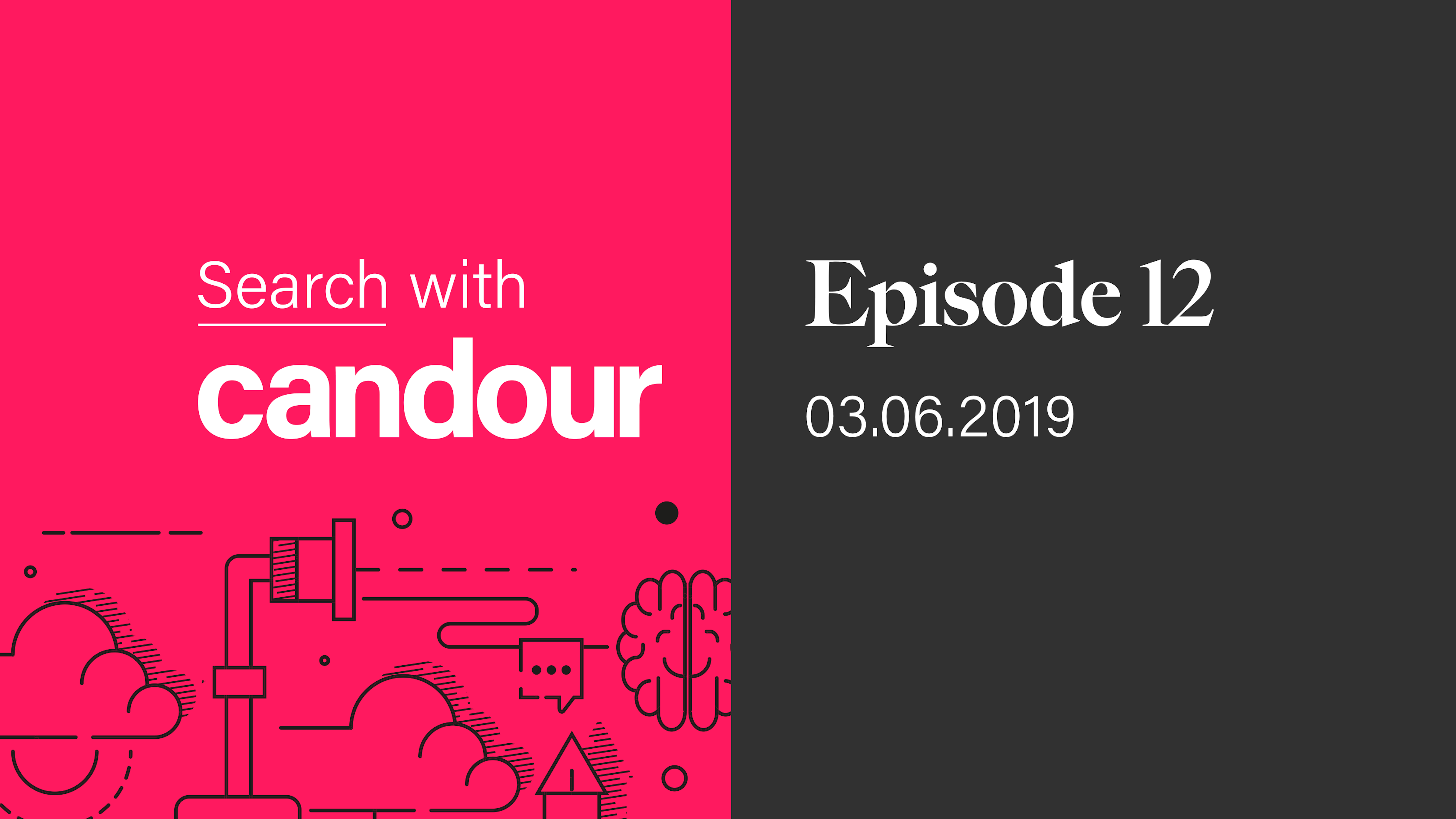
Get some great insights into techniques and real-world examples for outreach and link building, one of the most important aspects of SEO
Play this episode
01
What's in this episode?
In this episode, you'll get some advice about outreach techniques and how it compares to traditional PR when trying to gain exposure of a brand or a client.This will include some real life examples, with sample templates which have shown success before! Listening to Jack Bamfield will give businesses insight into how they can gain further links from high quality sites using the guide provided.
02
Links for this episode
Full video:
Jack's slides:
Video of Jack's talk: /watch?v=r_aeqI2k9EQ
Jack's slides: /searchnorwich/getting-the-right-angles-for-outreach-jack-bamfield
SearchNorwich: /
03
Transcript
MC:
Welcome to episode 12 of the Search with Candour podcast recorded on Sunday 2nd of June 2019, my name is Mark Williams-Cook and this week I’m going to be bringing you a recording from SearchNorwich. It's going to be the talk titled ‘Outreach Done Right’, the talk was done by Jack Bamfield from Verve Search and he's going to talk about essentially link building and how to do it, which as anyone working in SEO knows is still one of the most important things you can do, and it’s one of the hardest things. I really like this talk by Jack, he goes into a lot of detail about the whole process; from ideation to creating a story and how to pitch it and gives some real-world examples, and more importantly he goes into such detail he even shows the actual templates of outreach emails he's using. You can see all of the presentation and the video of him doing the talk on the show notes at search.withcandour.co.uk, or if you're local to Norfolk and you want to attend SearchNorwich, you can find out more about it at search.norwich.org. Otherwise enjoy Jack Bamfield!
JB:
Hi everybody I'm Jack I'm an outreach specialist at Verve Search and this is Verve Search some of the people I work with. This is the outREACH conference that we do every year down in London, it's the 7th of June if you fancy coming along. We do talks about digital PR and marketing and how to get links to various high quality sites.
So, what do we do as an agency? Well we produce creative campaigns. This is the first campaign I worked with at Verve and we produced this for a company called ‘AdView’:
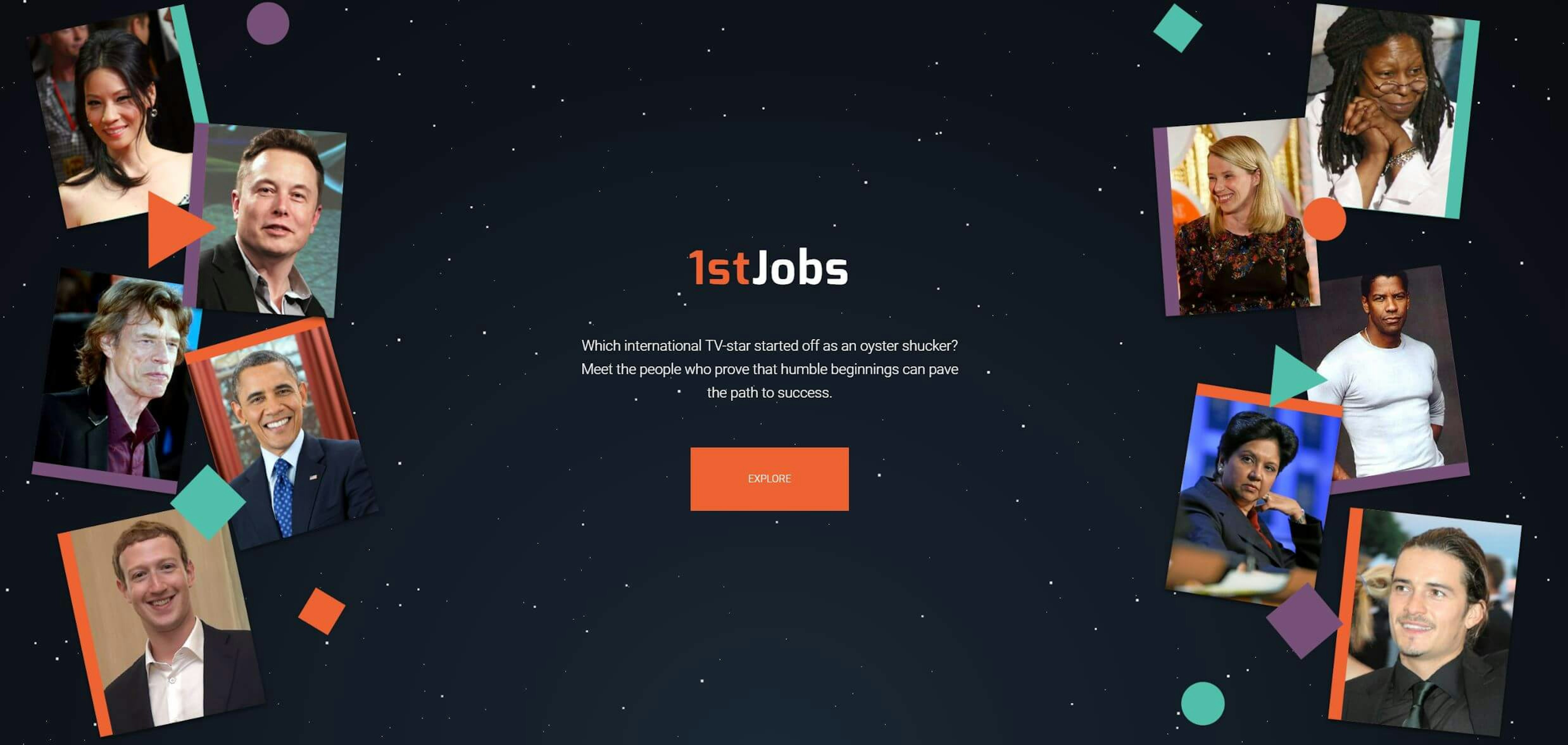
Like a job site basically and we produced it to sort of create a list of the first jobs of the most successful people in the World. Comparing the humble beginnings of how they started their career to what they do now, so some of them were just average summer jobs working at McDonald's or Starbucks or whatever. On occasion he had some people like Meghan Markle quite interestingly, she was a freelance wedding calligrapher.
So when I first started around the time of the Royal Wedding I though “great!”, didn't get any coverage but anyway, why do we do this? Well in outreach our job is to get links and coverage out from top-tier news sites around the world. Some of these are The Guardian, Chicago Tribune, things like that - these links help improve our clients’ organic rankings on search engines.
How do we get links and outreach? Well I think it comes down to three main ideas:
Ideation - building campaigns that journalists want to write about
Story - finding multiple angles for coverage
Pitching - writing a headline-grabbing outreach email. Everyone on our team interprets the role differently especially with seven nationalities in the group but my interpretation of it comes from traditional PR but albeit with a twist.
So in the summer of 2017 I worked with a company called Right Angles, they are a high-end boutique PR agency and we worked with high net worth people - multi-millionaires, business leaders anybody who is in management and anybody who’s reputation sort of needs to be managed on a daily basis effectively. So we delivered personal PR for high-profile clients, managing their reputation on a daily basis and each client would have different priorities. One day you're promoting British shipping, this is this was a staple client for us - Maritime UK, they are the trade body for the maritime industry they promote British shipping around the world and in Britain and protects all the imports and exports that come into and out of the UK. They were quite an exciting client to work with as I will explain or you could be promoting a hit Broadway musical. One of our clients was the executive producer for Harry Potter and the Cursed Child and was in the process at the time of bringing the successful musical over to London, having absolutely smashed it in New York. He wanted to get all of this nice glossy coverages you do when you're an executive producer of such a production.
So how do we deliver results to clients? Well I thought it was the same three things basically. Ideation: so you understand your client’s business, story: you find stories that your client can legitimately comment on, and pitching: so selling your client into the stories.
But how did this work in practice? So I thought I'd go through the three areas: ideation, story, and outreach, and compare that to traditional PR and what I do now which is outreach. So in personal PR we researched our client’s industry thoroughly before launch so we knew their business better than they did. You couldn't at any point go into a meeting with all these business leaders not having researched it thoroughly because if you do that and you suggest things something along the lines of “I don't know, he might have a connection there”or suggest for example meeting another person in the industry who he may have had a falling-out with 20 years ago and you ought to have known that. But if you go into the meeting saying “you should meet that guy” and they say “well we fell out 20 years ago didn’t you know that?” you look like a complete dick so you can't do that! So knowing the client’s past is important, but campaigns in many cases were often defined by the client.
So I mentioned Maritime UK when we were working with them we were working towards something called ‘London International Shipping Week’ which is a big Government event in London, based on trying to get people to buy into the shipping industry around the world. So everyone would descend on London, meet different people in the industry and it'd be a big old networking event in London basically. It coincided with a few other things which I'll explain.
So how do we sell this campaign? Well in this campaign we were selling the spokesperson of Maritime UK and their report into Maritime Industries’ contribution to the UK economy, so that's personal PR what about outreach?
In outreach we sell the story rather than the spokesperson, so we're not selling some great big report into the maritime industry or somebody's livelihood or anything like that. We're selling a story that we made. Our campaigns help journalists tell interesting stories, rather than researching the industry we research the media landscape and what journalists will want to write about. Journalists love stories that matter to ordinary people and in Britain in particular they love writing stories that people are going to have a moan about and what do people in Britain love moaning about? BMW drivers! Sorry BMW drivers but it’s true. If people love complaining about it journalists want to write about it!
So that led us to produce this campaign for GoCompare:
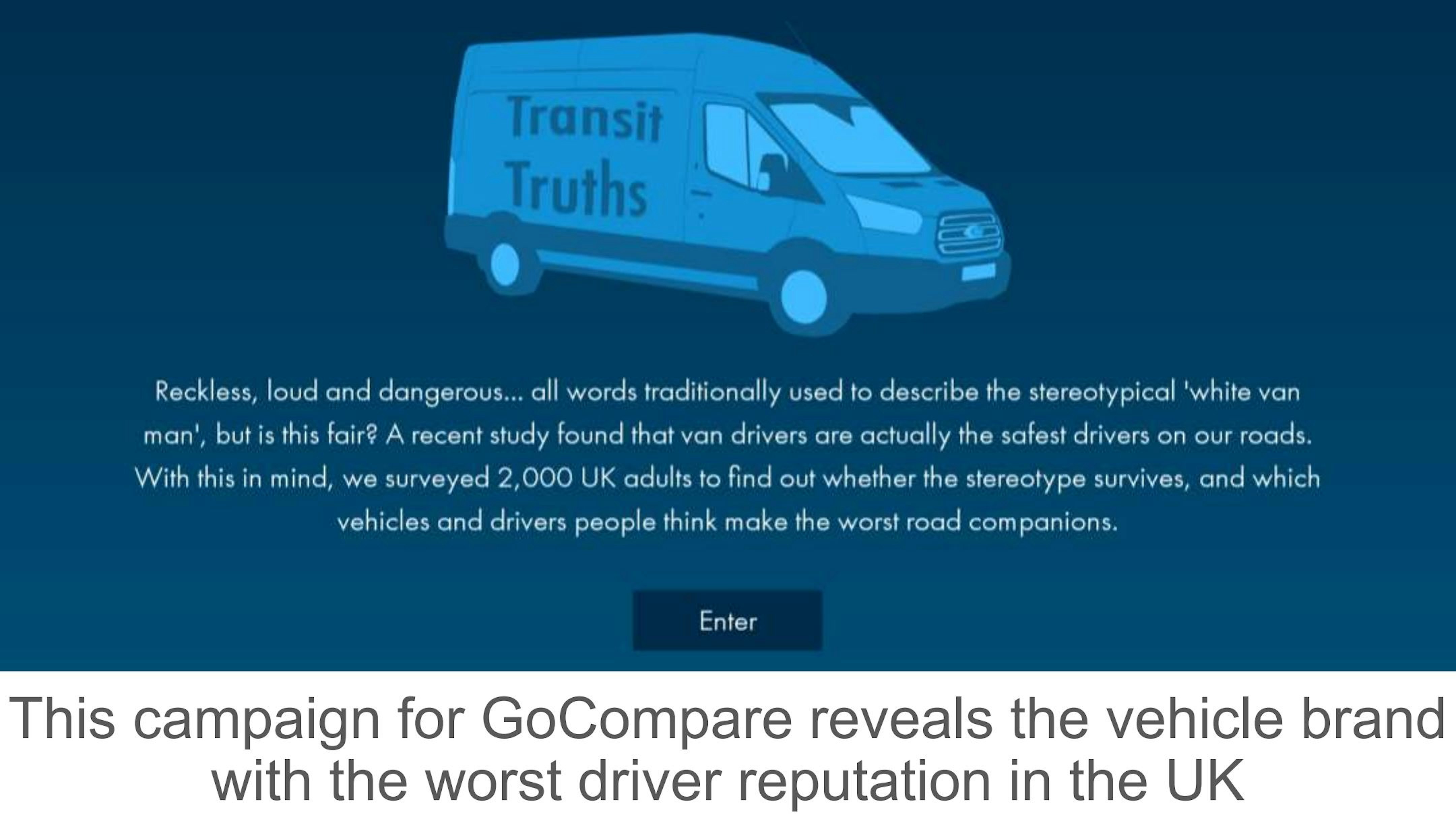
We did a survey of 2000 Brits to find out what vehicle types they think produce the worst drivers on the roads in the UK. We were sort of hoping with this campaign that we would take a little bit of flak off Transit drivers because we were serving Van insurance. Luckily we did, very marginally BMW drivers came out on top. But we knew this campaign would interest motoring journalists and it did! It interested The Sun, then we got quite a bit of regional coverage in East Midlands and some up in Yorkshire and we got quite a bit of international coverage for it as well. But it has an added benefit, so here you see GoCompare is listed as the source of the story in the Sun.
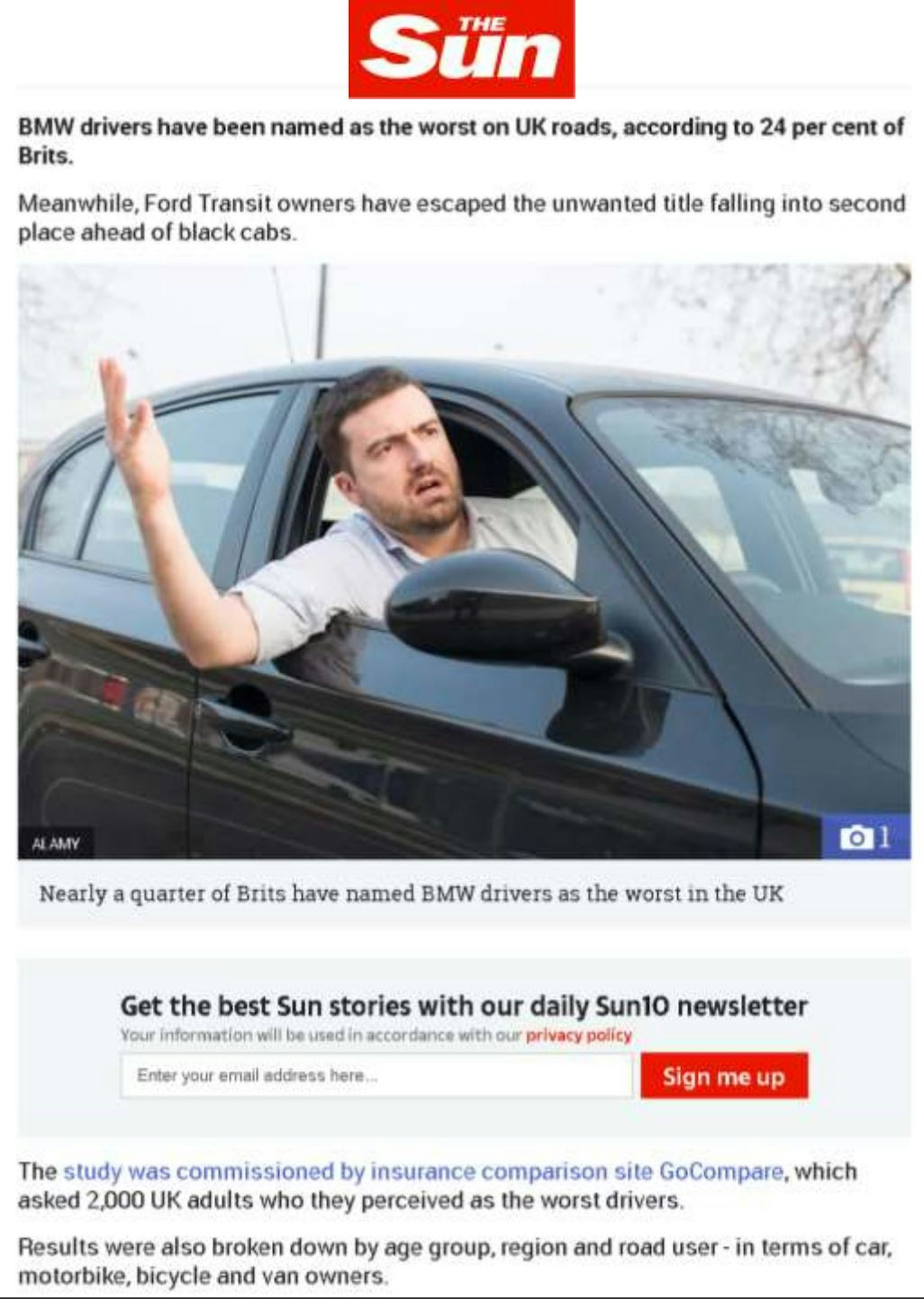
By making the client the source of the story it helps build trust in the brand, it may be one article but this is the sort of thing we do week in and week out for them.
We produce campaign after campaign and get it out there in the national, regional, international press but to build that trust we need great stories that interest journalists. So that's ideation!
Now to move on to ‘story’. In outreach our campaigns have many different angles and this often leads to coverage in completely different sectors. Good example of this, we produced another campaign for AdView called ‘What would you tell your teenage self?’ it was a sort of bank of 50 quotes from business leaders, celebrities, similar sort of people took the first jobs campaign I shared earlier and the quotes sort of looked something like this:
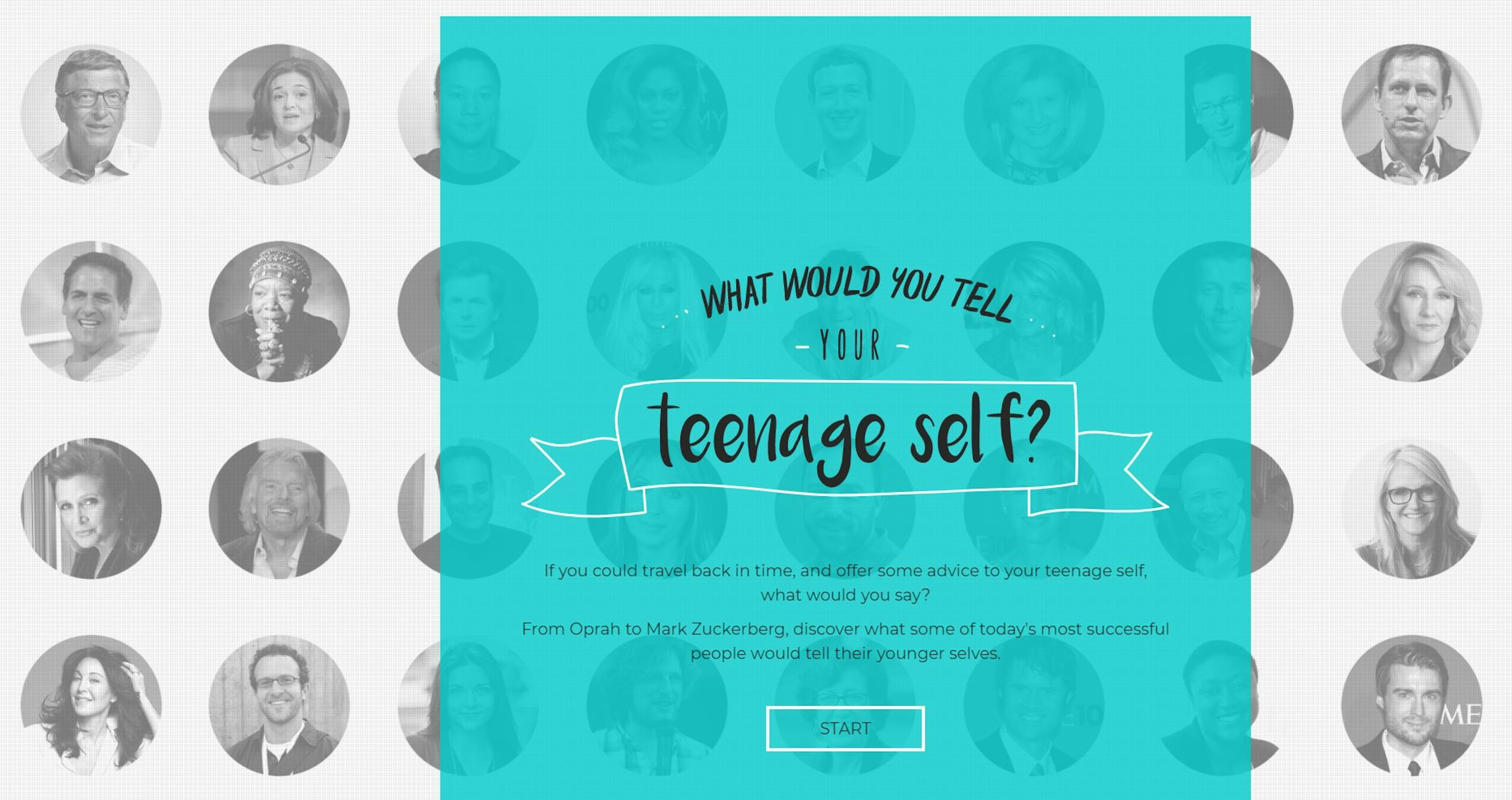
Nice, shareable content basically. My instinct when I first started outreaching this was to go with celebrity and lifestyle coverage, thinking that you've got people like Oprah on the list and lifestyle places like Cosmopolitan they would like to cover it but I was wrong! What I actually found is that I started to get quite a bit of business coverage. Your first instinct is to always get more coverage so I started to get things like Business Insider and Entrepreneur, and these journalists were saying “this is great because we want to hear about how great the quotes are from Steve Jobs and Jeff Bezos and whoever else. So in outreach we get to choose from many angles that we think will get the most coverage but in personal PR being reactive was key, our client needed to be first developing the news story so they could react to it. So following the news cycle was essential.
When we were working with Maritime UK this came up which was quite a big news event at the time - the Royal Navy brought in the Queen Elizabeth II into Portsmouth Harbour. It's a huge news event on the day because the Queen went down there, Theresa May went down there and you can imagine it was a huge event because she was talking about how great it was for British shipping, British manufacturing and after a tough summer in the Brexit negotiations it was quite a good story to tell the British people. So we use the interest in this story that it generated to create major coverage for Maritime UK.
We contacted every national news desk. Effectively how it worked was that we invited everybody into a nice meeting room and got the expert quotes from Maritime UK, we got them all journalists, so the quotes from Maritime and everything they needed for the story were there and done. Of course the relevant stories from the Maritime UK report, specific quotes from people in the maritime industry and the result was blanket print coverage.
But in outreach we need links but however what happens if the campaign is slow to get links? This is one of the biggest issues in SEO and link building, sometimes you produce a campaign with the best intentions and it doesn't get links. We had a little bit of that with this campaign that we produced Shutterfly, Shutterfly are an American photography website where you put your face or a photo online and they put it on stuff. That's that kind of stuff, so basically that's what they are. So we produced this campaign for them thinking that they're quite photo-oriented so we did this illustrative campaign about what different Americans that we found would put in a time capsule. So it kind of looked something like this and it's quite emotive because you've got Obama, you've got Martin Luther King, you've got quite wholesome homely American type stuff.
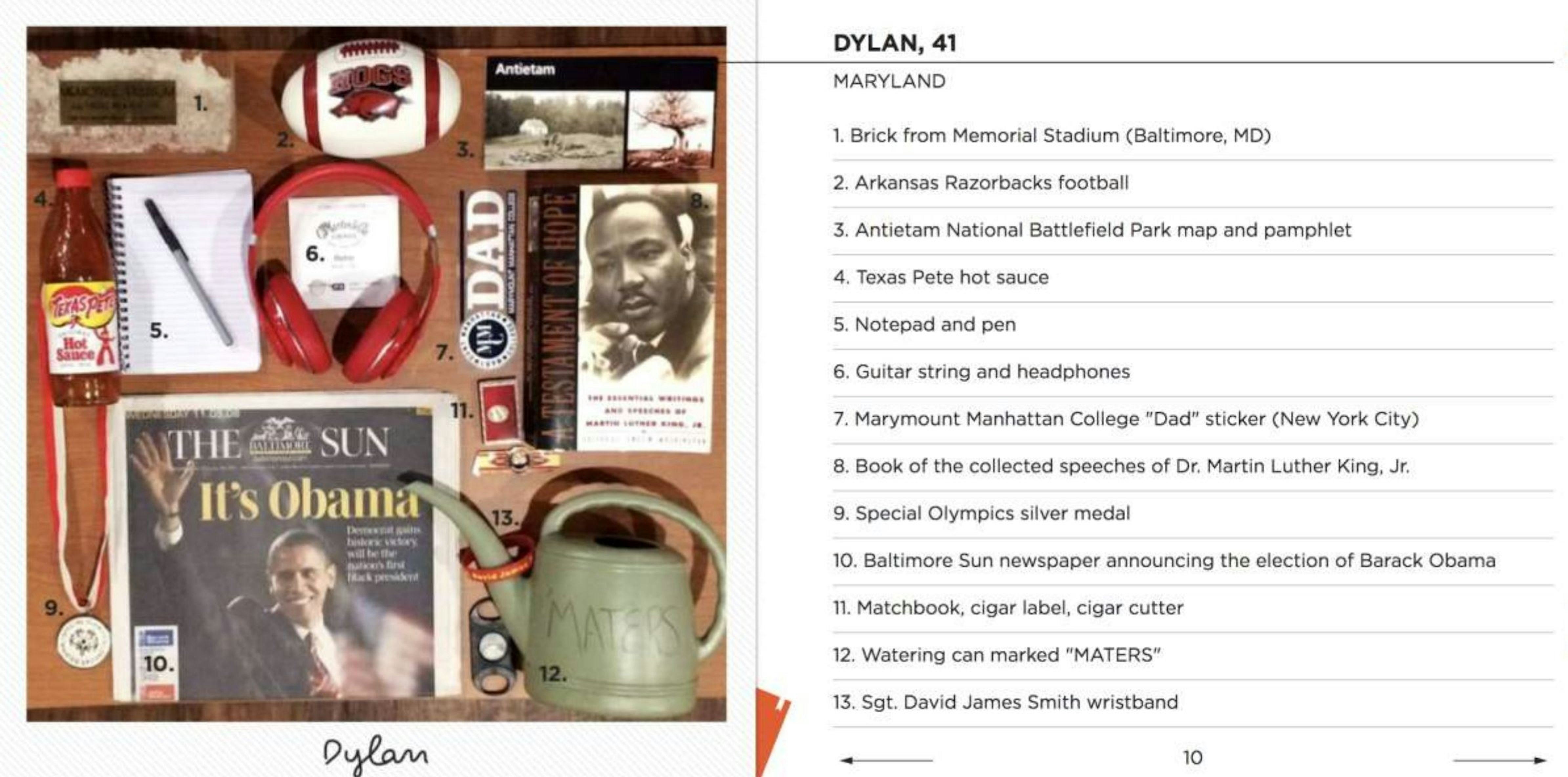
We thought it was a really nice campaign but unfortunately it struggled for coverage. It's interesting but it doesn't grab headlines, so how are we going to fix this? We surveyed 1,000 US citizens to find out what items they would put in a time capsule including their favorite movies of the decade. What do you think won? Star Wars! Tough sell. I mean who’s going to want to write about Star Wars? Well The Washington Post did, or maybe the Chicago Tribune, or even The Guardian. But that's how it works, that wouldn't have been possible in personal PR - that kind of coverage because you can't change your client. If you're stuck with a boring client that isn't going to generate coverage you’re not going to get any coverage! But in SEO you're selling the story, so you can change it up if you need to.
Okay that's story, now to move on to ‘pitching’. In personal PR the pitch got target depended on the client, so journalists would often be aware of your client’s reputation through just their name being out there - they’re high profile people so journalists would come to you, and especially if that client’s already an authority on the issue. Our clients could get on the news without us having to sell them in and this is often the case with one of our big clients guy called John Mills. He's an entrepreneur, he founded a company called JML who are quite well known. You might often see him on the News because he's quite unique as a Labour supporter of brexit. He often gets on that side of the debate as a Bexiteer, and his economic views are quite contrary to most people in his side of politics. So our efforts then focused on making sure that he was ready for these appearances, or any client that we had so these people knew exactly what to say and how to make the most of the opportunity. But in outreach getting a link starts with a direct email to journalists every time, we never pick up the phone or anything like that it's always email and this can be a little bit daunting, especially when I started.
However when I first started emailing journalists I membered one simple piece of advice from PR - “I'm gonna shoot you in the face and here's why...” it seemed quite dramatic but my boss always used to take the view that's he always hated the way academics write because academics build your arguments through the paragraphs and then you finish at the end. But in journalism and in PR you've got to get your point in straightaway, get straight to the point and don't sort out with anything else Journalists get straight to the point, so should you. So for this Washington Post piece of coverage that I got on here's the email I sent:
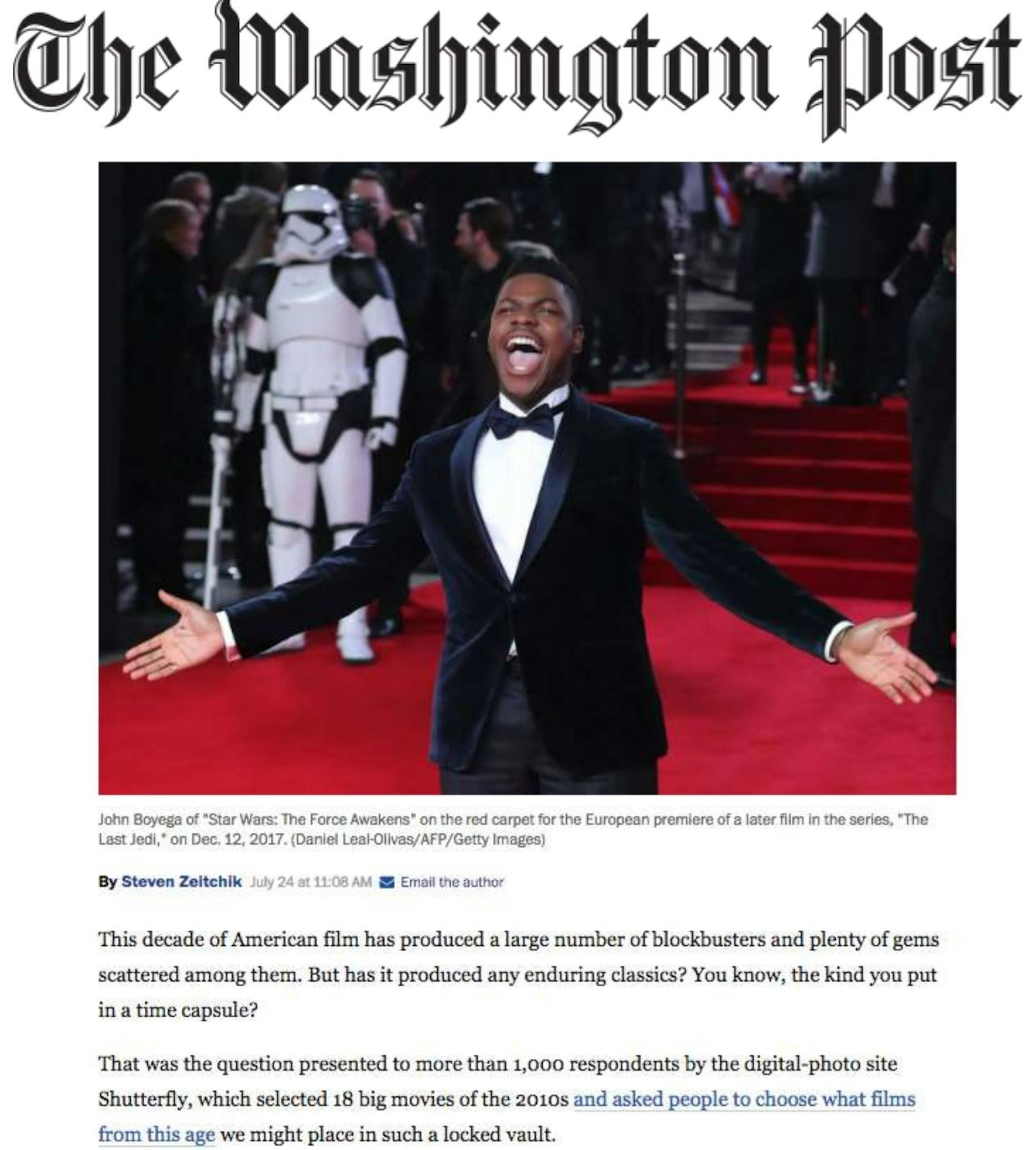
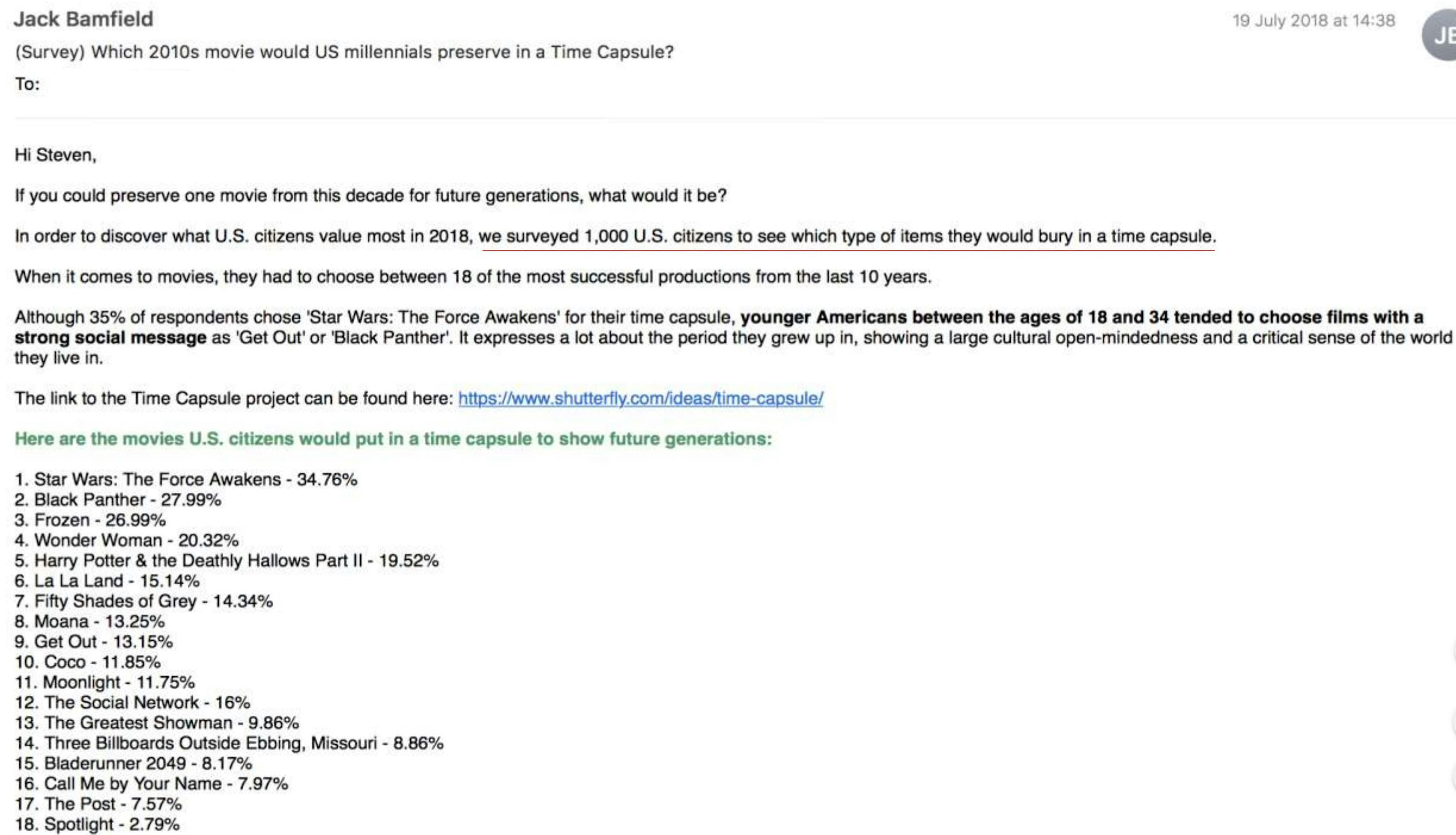
You can see I just get straight to the point - 1,000 US citizens to see what they'd bury in a time capsule. I do particularly like having a line at the top to put the idea of the story into the journalist’s mind because that's half the batter we write - you're trying to get the journalist to envision the story going up on their site and that's sort of what that's about. However it's still possible to get your client expert comment alongside a standard news article and I was able to achieve that with a campaign called ‘Jargon Jobs’ again for AdView. We did this campaign quite recently, it's essentially a list of the kind of jargony type of phrases, the paradigm shifts and the blue sky thinking - that sort of jargon, and how often it is used in job ads so we put together a list a different jargons basically and which cities have most covered and I got something like this:
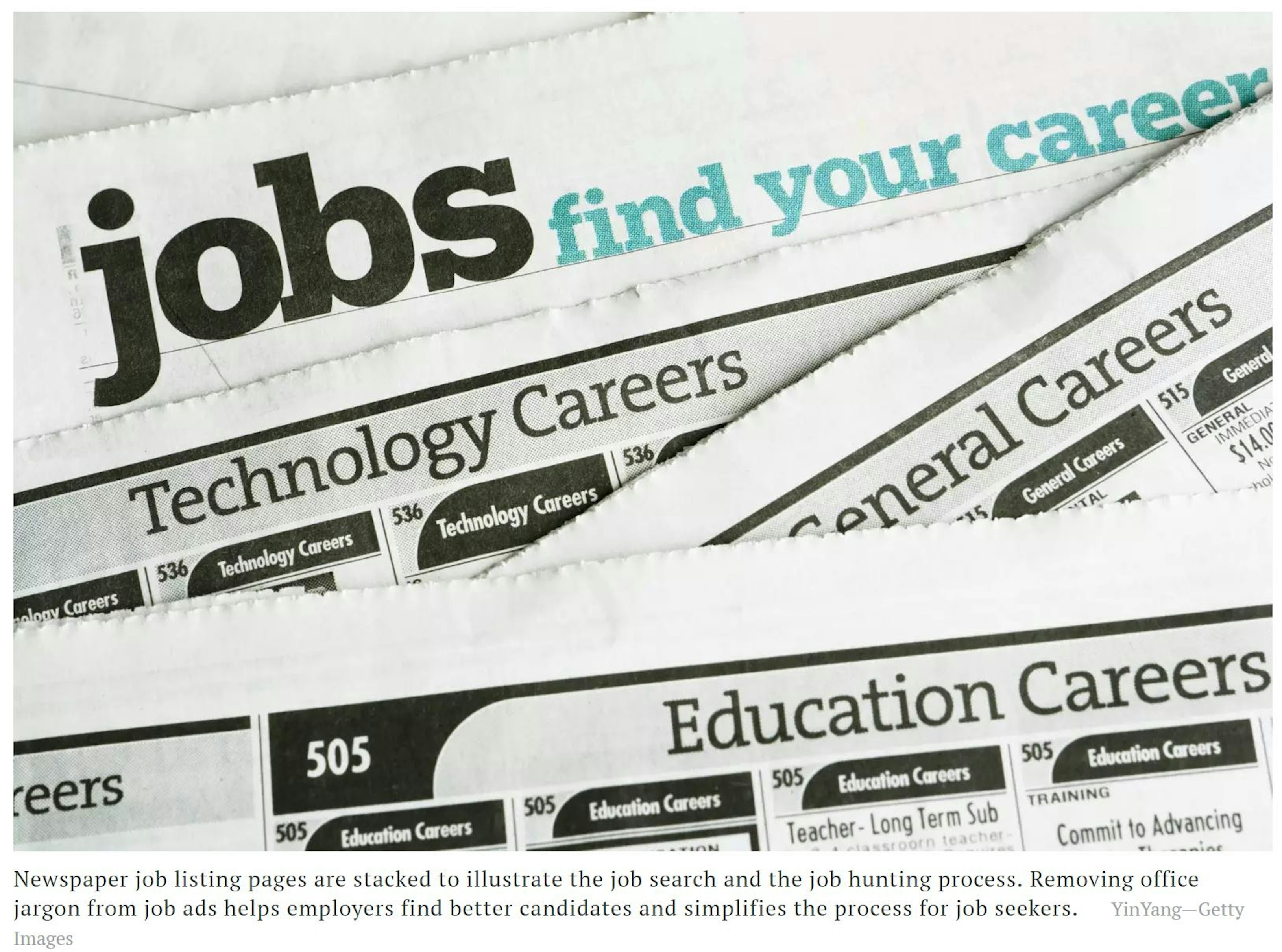
I was able to use that to get this piece of coverage in Fortune and I don't know if you can quite see it but right at the bottom it's the byline. This tribute to a guy called Alex Patterson who's the chief exec of AdView. I contacted the commentary desk Fortune’s staff writers. the logic being that it might be used potentially as a commentary piece as well, maybe they might like it as an opinion. Usually you just get the story, the journalist to write it up and hopefully include a link. But Fortune asked me to write the editorial on behalf of AdView which meant I guaranteed myself a link because if I write it up then we get a link! So that's how I pitch stories and outreach.
So wrapping things up I wanted to sort of compare how PR and outreach are different and similar at the same time. So how are they different?
In outreach we build campaigns by knowing what the media wants to cover - we're selling the story not the spokesperson, we're not selling Maritime UK, we're not selling cruise ships or people's boats or imports and exports or anything like that. We're coming up with stories that interest journalists. We don’t have we don't have the luxury of journalists coming to us about our stories, we actually have to go out there and then find it.
How personal PR and outreach are similar, you both have to get straight to the point and know why journalist wants to know the story, in outreach we trade in our abilities to get links and we give our clients interesting things to say about the world like what kind of movies that Americans have put in a time capsule. These campaigns also can enhance the client's brand by making them the source of story and this helps improve their reputation just as we would have wanted in personal PR. Good outreach campaigns get link's, they secure great links and great media exposure. Get the right angles and you'll get the right links.
Thank you.
MC: I hope you enjoyed that talk, as I said before, if you want to get hold of Jack's slides so you can see the resources he's talked about and the email templates you can find them on the show notes at search.withcandour.co.uk or if you want to find out more about SearchNorwich and see the whole library of talks there, you can find out more at searchnorwich.org. Otherwise my name is Mark Williams-Cook and I'll be with you next on Monday the 10th of June and I hope you all have a great week.

